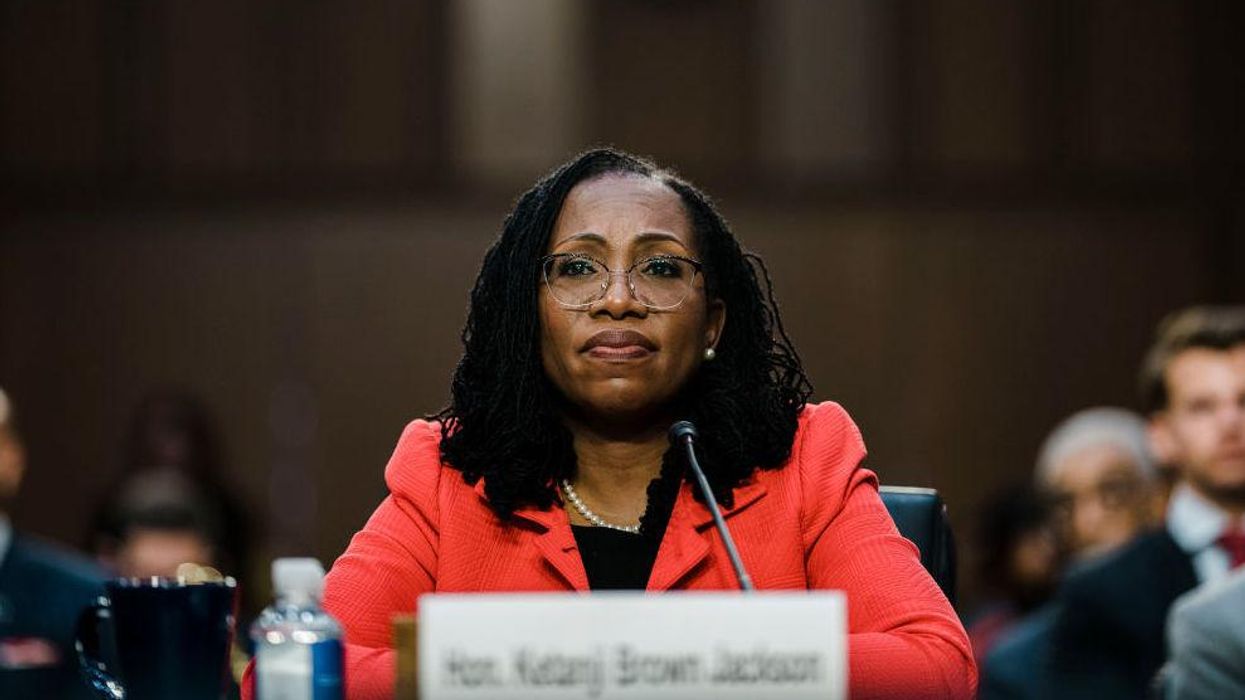
Kent Nishimura / Los Angeles Times via Getty Images

Supreme Court Justice Ketanji Brown Jackson claimed the framers of the "Reconstruction Amendments" did not intend for them to be "race-neutral," that is, color-blind.
During oral arguments in Merrill v. Milligan, Jackson used "progressive originalist" methodology to refute assertions of "color-blind" remedies to questions of voter discrimination.
The case centers on Alabama's redistricting map, in which lawmakers gerrymandered districts in such a way that only one is majority black. Under the proposed map, black residents have control over just 14% of the state's congressional districts despite being roughly 27% of the state population.
At issue is whether Alabama's "race-blind" approach to drawing congressional districts ultimately discriminates against minority voters.
After hearing arguments from Alabama Solicitor General Edmund LaCour, Jackson asserted that the entire point of the Reconstruction Amendments — the 13th, 14th, and 15th Amendments — was to provide a race-based legal remedy to problems that former slave states otherwise refused to adopt.
"I don’t think we can assume that just because race is taken into account that that necessarily creates an equal protection problem," the justice said.
Jackson explained that after she analyzed the justification of the framers of the post-Civil War constitutional amendments, "it became clear to me that the framers themselves adopted the Equal Protection Clause, the 14th, the 15th Amendment, in a race-conscious way."
"That we were, in fact, trying to ensure that people who had been discriminated against — the Freedman, during the Reconstruction period — were actually brought equal to everyone else in society," she said.
To support her thesis, Jackson cited the Report of the Joint Committee on Reconstruction, which was drafted by the same lawmakers who wrote the 14th Amendment. The report provides the legal rationale for the constitutional protections deemed necessary after slavery.
"That report says that the entire point of the amendment was to secure rights of the freed former slaves," she explained. "The legislator who introduced that amendment said that ‘unless the Constitution should restrain them, those states will all, I fear, keep up this discrimination and crush to death the hated Freedman.’ That’s not a race-neutral or race-blind idea in terms of the remedy."
Going even further, Jackson noted that one purpose for adopting the 14th Amendment was to provide a legal basis for the Civil Rights Act of 1866, which "specifically stated that citizens would have the same civil rights as enjoyed by white citizens. That’s the point of that act, to ensure that the other citizens, the black citizens, would have the same as the white citizens."
It's too early to tell. But as Vox noted, even the court's conservative-leaning justices seemed skeptical of many of LaCour's arguments. The news outlet actually suggested that Brett Kavanaugh may side with his liberal-leaning colleagues, given the questions he asked.
Still, Alabama is likely to prevail — albeit with a narrow, not broad, victory.